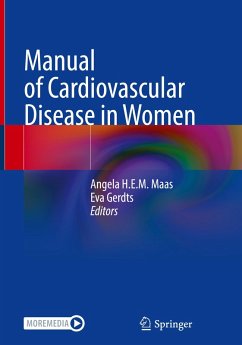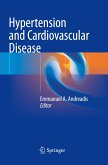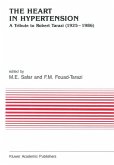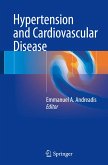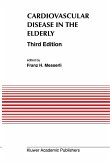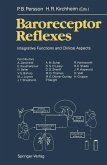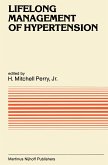This manual defines sex and gender differences in cardiovascular disease and how they have become an important topic within most subspecialities in the field of cardiology. It is now evident that sex differences in biology and lifestyle influence the pathophysiology of heart disease. Consequently risk factors for cardiac disease are modified by sex and gender, and women and men develop partly different variants of the same heart diseases. These facts profoundly influence prevention and management in clinical practice. Good medical practice demands a more tailored and personal care for each individual patient. In addition, the life-course of women has a few unique phases, related to hormonal changes in pregnancy and after menopause, that also interact with individual risk and the development of co-morbidities. As heart disease is now the number one cause of death in women worldwide, a more specific attention to cardiovascular disease in women is justified.
Most important advances in gender-specific knowledge are related to ischemic heart disease and its traditional and sex-specific risk factors. Diagnostic pathways have changed, coronary angiography is no longer the gold standard that it used to be. Recent guidelines and position papers have paid attention to these new insights, whereas educational programs urgently need to be adapted. The ongoing paradigm shift in cardiology needs to be updated for the clinician in an easy and accessible manner. Other important topics in which sex and gender differences have been elaborated are heart failure, atrial fibrillation, aortic valve disease and its treatment, cardiac rehabilitation, co-morbidities, cardiotoxicity in cancer treatment and neurology. In addition, female-specific risk factors and socio-economic factors are relevant to women's cardiovascular health. We will invite the best EU experts in this field to contribute to the various chapters.
Manual of Cardiovascular Disease in Women has an educational role for established cardiologists and vascular specialists in training, nurses and other allied professionals. It represents an update on the most recent insights in sex- and gender differences in cardiovascular health with a focus on women's cardiovascular diseases.
Additional questions via app: Download the Springer Nature Flashcards app for free and use exclusive additional material to test your knowledge.
Bei diesem Produkt handelt es sich um ein Bundle, bestehend aus einem Buch und einem digitalen Mehrwert.
Deshalb wird dieses Produkt auf der Rechnung mit 19% MwSt ausgewiesen.
Hinweis: Dieser Artikel kann nur an eine deutsche Lieferadresse ausgeliefert werden.
Most important advances in gender-specific knowledge are related to ischemic heart disease and its traditional and sex-specific risk factors. Diagnostic pathways have changed, coronary angiography is no longer the gold standard that it used to be. Recent guidelines and position papers have paid attention to these new insights, whereas educational programs urgently need to be adapted. The ongoing paradigm shift in cardiology needs to be updated for the clinician in an easy and accessible manner. Other important topics in which sex and gender differences have been elaborated are heart failure, atrial fibrillation, aortic valve disease and its treatment, cardiac rehabilitation, co-morbidities, cardiotoxicity in cancer treatment and neurology. In addition, female-specific risk factors and socio-economic factors are relevant to women's cardiovascular health. We will invite the best EU experts in this field to contribute to the various chapters.
Manual of Cardiovascular Disease in Women has an educational role for established cardiologists and vascular specialists in training, nurses and other allied professionals. It represents an update on the most recent insights in sex- and gender differences in cardiovascular health with a focus on women's cardiovascular diseases.
Additional questions via app: Download the Springer Nature Flashcards app for free and use exclusive additional material to test your knowledge.
Bei diesem Produkt handelt es sich um ein Bundle, bestehend aus einem Buch und einem digitalen Mehrwert.
Deshalb wird dieses Produkt auf der Rechnung mit 19% MwSt ausgewiesen.
Hinweis: Dieser Artikel kann nur an eine deutsche Lieferadresse ausgeliefert werden.

